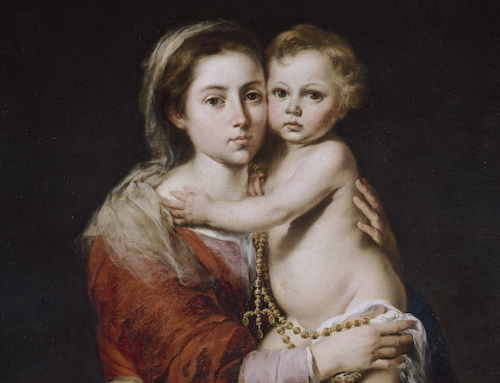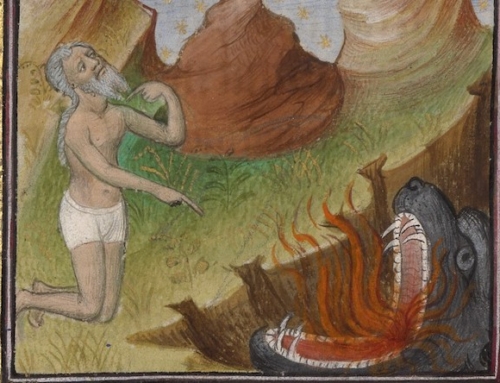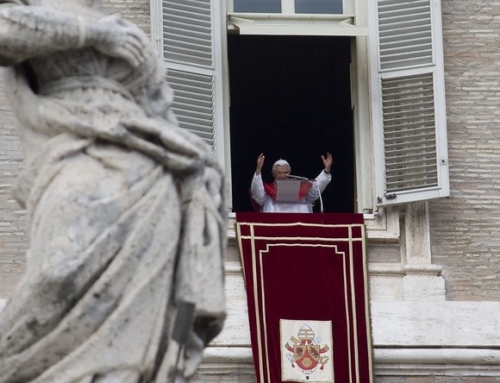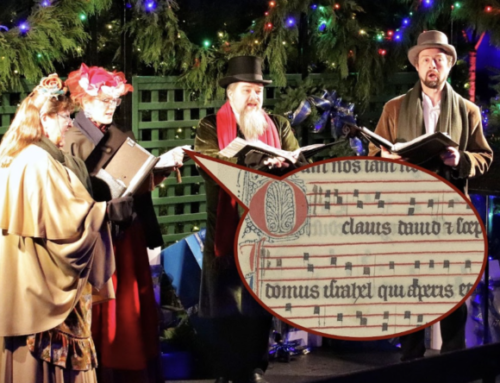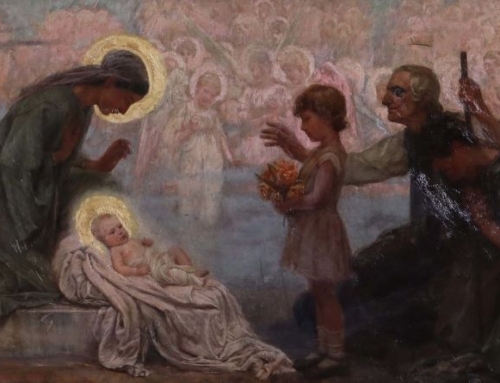Advent is a season of waiting. The readings and prayers of the season’s liturgy turn our attention to the Lord’s arrival (adventus) in a twofold way. Earlier in the season, they focus on the second coming of Jesus and the final judgement. Later, they focus on Jesus’ first coming to the world, and we hear the ancient prophecies that foretold him. These weeks are a graced time to meditate upon these two mysteries. They both reveal the providential care God shows us, and they both demand a confident waiting.
These mysteries of Jesus’ life are personal for every Christian. Jesus thirsts for souls and he seeks to arrive in every heart, but we cannot dictate the terms and conditions of his arrival. In the spiritual life, Jesus is always the one who acts first. He wants to deliver us from evil and sin, and he’s wise enough to know when and how he should arrive. Often, all we can do is wait for his arrival.
Waiting is hard. It’s hard not to know the result of a job interview or a medical test. It’s hard to wait for a loved one to return home when they’re a long time away. Amid confusion and difficulty, it’s hard to wait for the Lord.
Psalm 89 expresses the difficulty of this waiting. It recounts God’s “steadfast love” (Ps 89:1), praises him for his power, and recalls his mighty deeds and the covenant he established with King David. Then the tone of the psalm turns. The Israelites were promised, “his line shall endure for ever” (89:36), yet they had fallen upon hard times and the Davidic kingdom was no more. The psalmist trusts in the Lord, but he cannot fathom the meaning of Israel’s disarray. With pain he cries out, “Thou hast removed the scepter from his hand, and cast his throne to the ground. Thou hast cut short the days of his youth; thou hast covered him with shame. How long, O Lord? Wilt thou hide thyself for ever? How long will thy wrath burn like fire?” (Ps 89:44-46)
We know the answer to his lament. The Lord did not hide himself for ever; he came and revealed his face to us. When the vicissitudes of life leave us feeling abandoned or confused, we should recall this and mind a refrain found elsewhere in the psalms: “Wait for the Lord, and keep to his way, and he will exalt you to possess the land” (Ps 37:34). “Wait for the Lord; be strong, and let your heart take courage; yea, wait for the Lord!” (Ps 27:14). It is hard to wait for the Lord, but we can count on his deliverance.
Advent testifies to the fruitfulness of faithfully waiting for the Lord. He has come, and he will come again. We should be grateful for his first coming and hopeful for his second. He comes into each of our lives, and he providentially works to bring us into union with him. We need to wait, however, even when we don’t know how or when he will arrive. Saint Paul counsels us,
We ourselves, who have the first fruits of the Spirit, groan inwardly as we wait for adoption as sons, the redemption of our bodies. For in this hope we were saved. Now hope that is seen is not hope. For who hopes for what he sees? But if we hope for what we do not see, we wait for it with patience. (Rm 8:23-25)
We do not need to understand how the Lord is working in the world to know that he is working in the world. We need only wait for him with patience and a willingness to receive him. If we faithfully wait for the Lord, we will be prepared for his little advents in our own personal circumstances and the final advent when he will come to judge and renew the world.
✠
Photo by Ben White on Unsplash


